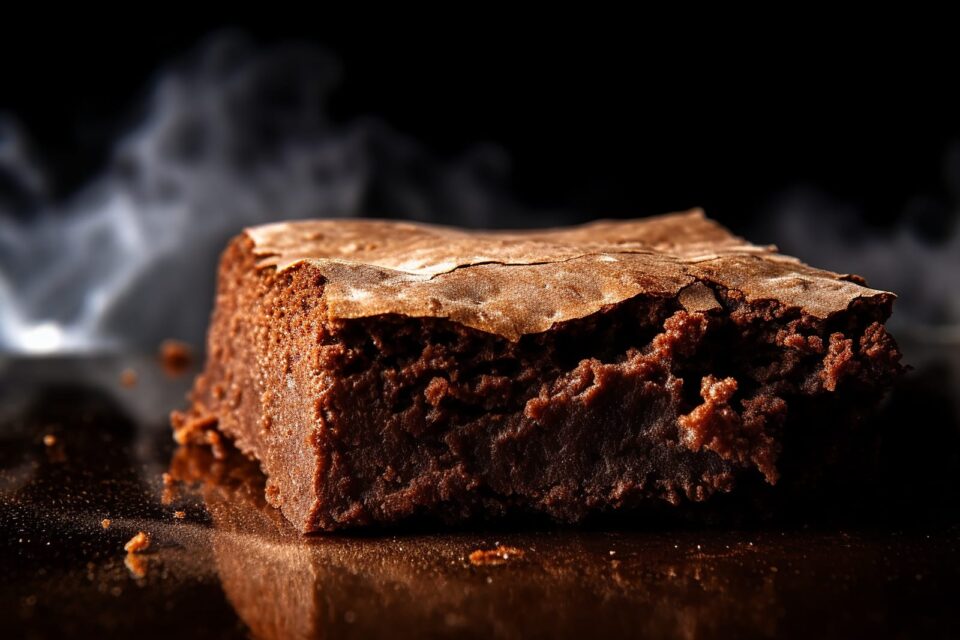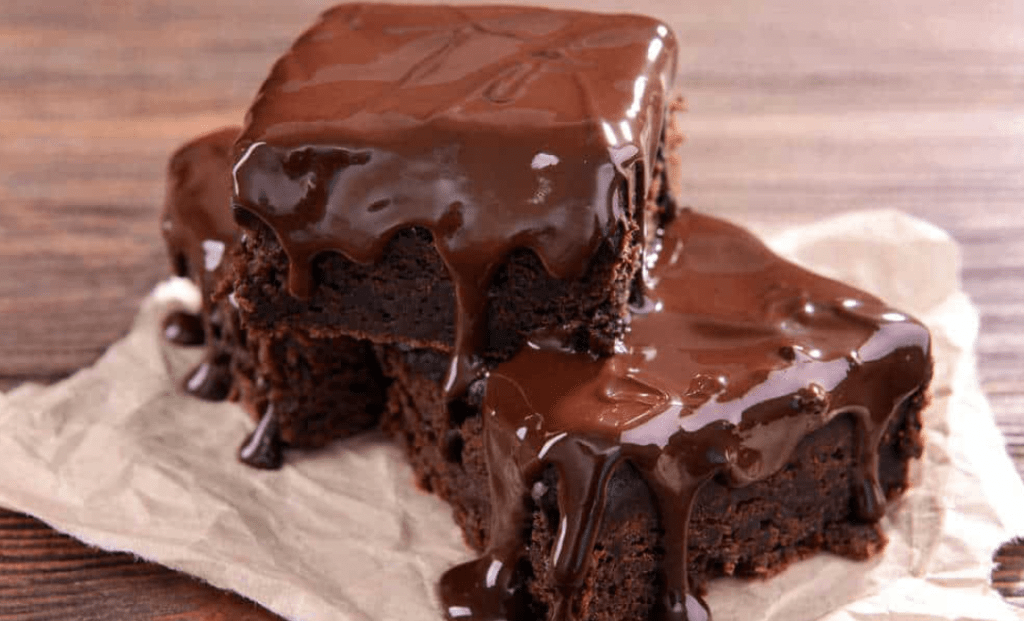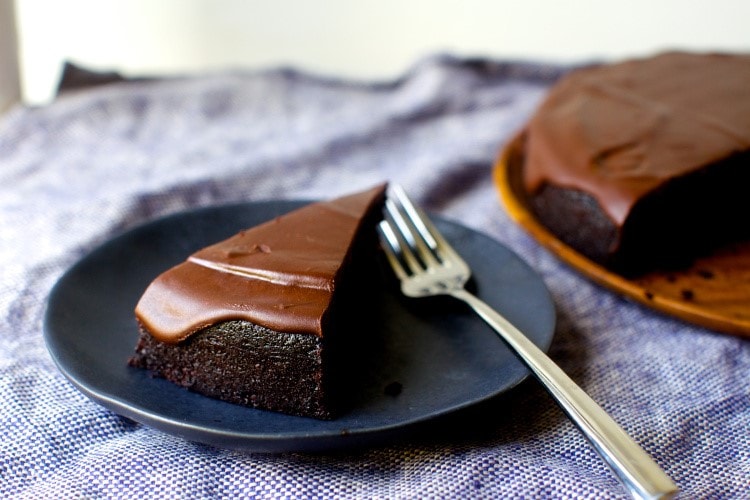Give Your Winter Bakes A Health Boost With Olive Oil As Substitute For Saturated Fat
Updated December 16th 2024

Summary
- Using extra virgin olive oil as a substitute for butter in your recipes is a great way to reduce saturated fats.
- Studies have shown that using olive oil instead of butter can reduce the risk of heart disease and other health problems.
- Extra virgin olive oil is also packed with antioxidants and anti-inflammatory compounds, making it a healthier option when compared to traditional baking ingredients.
Contents
Extra Virgin Olive Oil A Healthier Alternative To Butter For Baking
When it comes to baking, most of us assume we need certain staple ingredients, including flour, eggs and butter. However, more and more recipes are emerging that use good-quality Moroccan olive oil instead, resulting in super moist and absolutely delicious cakes.
Here’s why many of us are swapping butter for olive oil in our favourite bakes – and why you might too.
– Healthier
One of the reasons why people might prefer baking with Extra Virgin olive oil is because it is more nutritious than butter, which is high in saturated fat.
In comparison, extra virgin olive oil is high in mono-saturated fat, which includes antioxidants to protect our cells and vitamin E. Therefore, it is a healthier choice, as it has been shown to ease inflammation and lower the risk of developing heart disease.
Baking with it also reduces the amount of saturated fat you would otherwise consume, which raises cholesterol levels.
– Flavour
While you might think something bland or mild would be better in a cake or biscuit, having a strong flavour actually works in olive oil’s favour when it comes to baking.
This is because it can actually taste delicious in baked goods, adding to, instead of distracting from, the overall flavour of the pudding.
The strength of Extra Virgin olive oil you choose will depend on what you are baking, with All Recipes suggesting using a mild variety for cakes, muffins and cookies, as this will give the dessert a “fruity note without [being] overpowering”.
However, you can go for a stronger type for rich puddings, such as brownies or flourless cakes.
It is known to enhance the flavour of chocolate, nuts, spices and fruit, so don’t be afraid to substitute it when the recipe calls for melted butter.
According to Fine Cooking, its perfect match is a cake or bake that contains fruit or nuts, such as carrot cake or pumpkin bread.
“The Extra Virgin olive oil gives it a rich moistness and depth that enhances the warm spices and mingles perfectly with the essence of honey and the pumpkin seed topping,” Ellie Kiriger wrote, adding: “It’s an American favourite with a Mediterranean flair – a perfect package of taste and health.”
– Moistness
That brings us on to the next advantage of using Extra Virgin olive oil in baked goods – it makes them deliciously moist.
This is thought to be due to the vitamin E content found in Extra Virgin olive oil, which also helps to keep bakes fresher for longer. Indeed, while traditional cakes tend to go dry after a couple of days, those with olive oil typically stay squidgy far beyond this.
As olive oil cakes are known for their moistness, they lend themselves particularly well to bakes like carrot cake, orange cake, banana bread, lemon drizzle cake, and many other puddings that have a fruit or nut content.
– Great in chocolate cakes
Something that may surprise you is the relationship olive oil has with chocolate, particularly as the fat can have a slightly savoury flavour to it.
Despite this – or perhaps because of it – putting olive oil in chocolate cake recipes works brilliantly, giving it a rich flavour and moist texture that is difficult to replicate with butter.
As a result, there is a plethora of chocolate olive oil cake recipes available these days, including one from cookbook author and TV star Nigella Lawson.
In Nigellisima, she wrote: “Although I first came up with this recipe because I had someone coming for supper who – genuinely – couldn’t eat wheat or dairy, it is so meltingly good, I now make it all the time for those whose life and diet are not so unfairly constrained, myself included.”
The cake calls for ground almonds, vanilla extract, bicarbonate of soda, caster sugar, and eggs, as well as cocoa powder and olive oil. She recommends accompanying this delicious-sounding bake with raspberries as well as mascarpone or ice-cream.
A great advantage of eating a chocolate cake made with Extra Virgin olive oil, in addition to the flavour, is that a study has shown the combination of dark chocolate and extra virgin olive oil could improve heart health.
Research from the University of Pisa, published in Science Daily, revealed the two ingredients could reduce the risk of developing any cardiovascular conditions when eaten together.
Dr Rossella Di Stefano, who led the study, said: “We found that small daily portions of dark chocolate with added natural polyphenols from extra virgin olive oil was associated with an improved cardiovascular risk profile.”
– Vegan
Another great incentive to swap butter for olive oil is that you can make your favourite puddings vegan by removing the dairy content and swapping eggs for another ingredient.
It is also a good option for those with a dairy intolerance, allowing your loved ones to continue to enjoy delicious treats without suffering an adverse reaction to it.
For great olive oil cake recipes, take a look here.
Why Choose Extra Virgin Olive Oil for Baking?
Extra virgin olive oil (EVOO) has long been prized for its health benefits, so it’s no surprise that it’s earned a spot as a favorite among health-conscious foodies. Rich in monounsaturated fats (the “good” kind) and antioxidants, it’s great for heart health and reducing inflammation—perfect for anyone looking to balance indulgence with wellness.
When you use olive oil as a substitute for butter in baking, you’re not only making a healthier choice, but you’re also adding depth and complexity to your recipes. EVOO’s subtle peppery flavor can enhance everything from cakes to cookies, giving a modern twist to traditional treats.
Here are some stand-out reasons to swap butter for extra virgin olive oil in your winter baking repertoire:
- Healthier Fats: Butter is high in saturated fats, which can increase cholesterol. EVOO, on the other hand, is packed with heart-friendly monounsaturated fats.
- Moisture: Olive oil makes baked goods incredibly moist and tender, especially cakes and quick breads.
- Flavor: The slightly fruity, nutty undertones can elevate the flavor profile of many desserts.
- Dairy-Free Option: For those who are lactose intolerant or prefer dairy-free options, EVOO is a fantastic substitute.
How to Substitute Butter with Extra Virgin Olive Oil
Baking is often seen as a science, and getting the right ratio is key when it comes to swapping ingredients. Don’t worry, though—with this simple substitution guide, you’ll find it easy to replace butter with EVOO in any recipe.
Conversion Guide
Because butter contains water and fat, swap it with olive oil in a 3-to-4 ratio. For example, if the recipe calls for 1 cup of butter, use ¾ cup of olive oil instead. This will maintain the moisture balance without making your batter too greasy.
Butter
1 tablespoon
1 cup
Olive Oil
3/4 tablespoon
3/4 cup
This substitution works beautifully for most recipes, but it’s especially effective for cakes, muffins, quick breads, and dense cookies.
When to Avoid Olive Oil
While olive oil is an excellent substitute in many cases, there are a few situations where it’s best to stick to butter. For example, recipes that rely on butter for aeration, like a traditional flaky pie crust or puff pastry, may not yield the exact results you’re looking for. For these delicate bakes, consider using a mix of butter and olive oil instead.
Pro Tips for Using Extra Virgin Olive Oil in Baking

- 1/ Choose the Right Olive Oil
Not all olive oils are created equal. Extra virgin olive oil has the least processing, which gives it the purest flavor and most nutrients. However, the intensity can vary. For recipes with bold flavors, like chocolate cakes or spiced cookies, a robust olive oil works well. For lighter desserts, such as lemon loaf or vanilla cupcakes, opt for a milder EVOO to complement rather than overpower the dish.
- 2/ Pair with the Right Flavors
Olive oil’s natural fruity and peppery notes pair beautifully with certain ingredients. Think citrus (lemon, orange, grapefruit), spices (cinnamon, cardamom, nutmeg), and earthy flavors like nuts or dark chocolate.
- 3/ Add a Luxurious Finish
Drizzle a touch of olive oil over your finished creation to enhance its flavor and give it a glossy appearance. This is especially effective for pound cakes, brownies, or olive oil-based shortbreads.
Recipes to Try This Winter
Need some inspiration? Try these winter-perfect recipes that prove extra virgin olive oil is a baker’s best friend:
- Spiced Olive Oil Gingerbread
Packed with warmth from ginger, cloves, and cinnamon, this gingerbread stays moist and flavorful thanks to the olive oil. Perfect for a holiday gathering!
- Citrus Olive Oil Pound Cake
Brighten up winter mornings with a tangy, buttery cake that highlights the zest and juice of seasonal lemons or oranges.
- Dark Chocolate Olive Oil Brownies
Rich, fudgy, and impossibly decadent, these brownies benefit from the complex fruity notes of robust EVOO.
- Olive Oil Sugar Cookies
Add a modern twist to your holiday cookie exchange. These sugar cookies are buttery-soft without any butter at all.
Baking Beyond Butter
Extra virgin olive oil is not only healthier but also versatile and incredibly forgiving, making it the perfect butter substitute for home bakers and healthy baking enthusiasts alike. This winter, experiment with EVOO in your favorite recipes and discover how it can transform your baked goods into moist, flavorful masterpieces that everyone will love.
Want to learn more about healthy swaps and creative baking tips? Sign up for our newsletter and bake smarter, not harder!
Now go ahead—preheat your oven, grab your trusted olive oil, and whisk up some magic this season. Winter baking has never been so wholesome, flavorful, and fun!
Why Extra Virgin Olive Oil is the Perfect Substitute for Butter in Winter Baking
When winter rolls around, there’s something magical about the scent of cinnamon, nutmeg, and vanilla wafting through your kitchen as you bake your favorite seasonal treats. Whether you’re making spiced gingerbread cookies, warm fruit crumbles, or buttery pie crusts, there’s one ingredient you might not expect to be a game-changer for your baking this winter—extra virgin olive oil.
Swapping butter for this liquid gold is not only a healthier choice, but it also brings unique flavors and textures to your baked goods. Here’s why you should give this buttery substitute a try and how to make the switch seamlessly.

